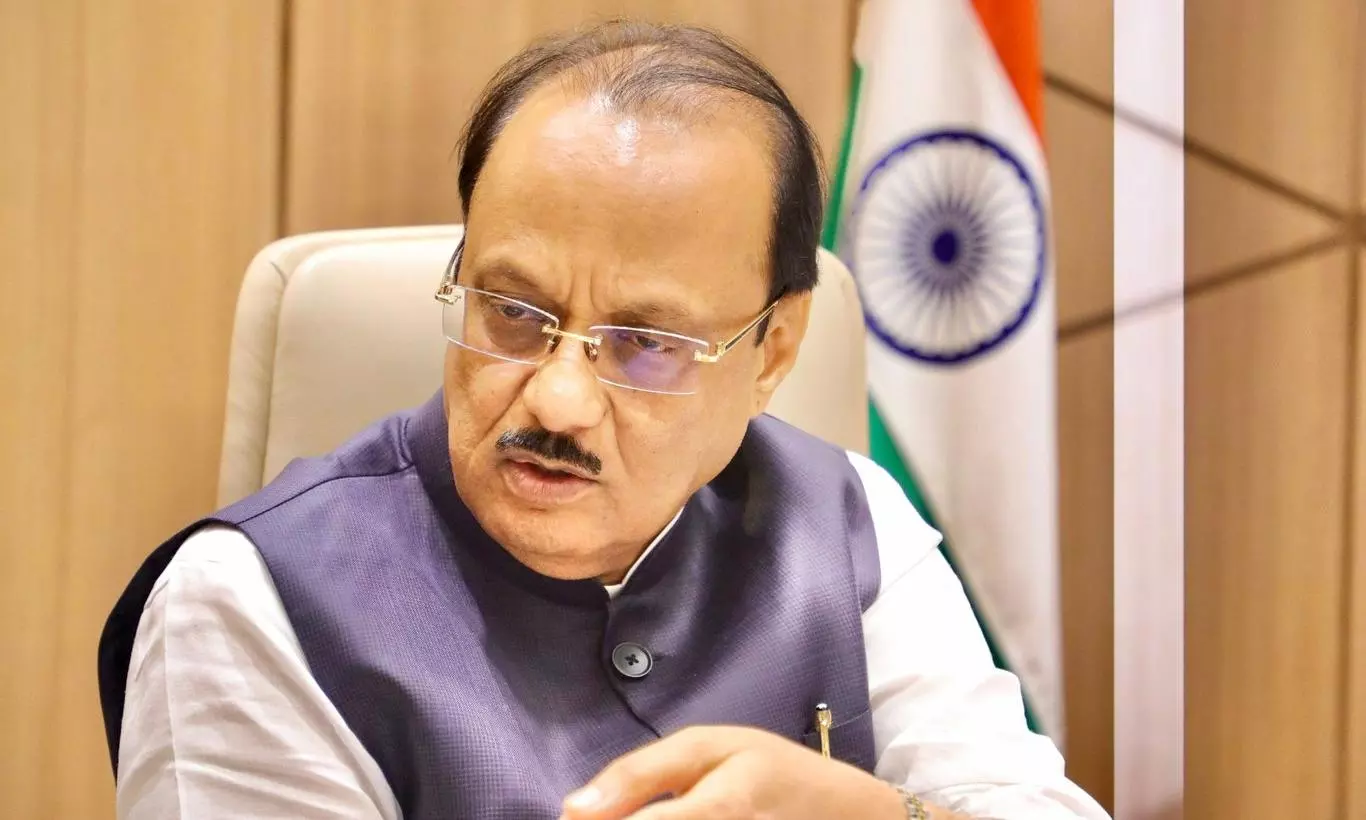Introduction
Ajit Pawar, a prominent Indian politician and a key figure in the state of Maharashtra, has played a significant role in the state’s political landscape for over two decades. Known for his strategic acumen and influential presence, Pawar’s career reflects a blend of governance, political strategy, and leadership. This article explores Ajit Pawar’s background, political journey, and contributions to Maharashtra’s development.
Early Life and Background
Ajit Pawar was born on July 22, 1959, in Baramati, Pune, Maharashtra, into a prominent political family. He is the nephew of Sharad Pawar, the founder of the Nationalist Congress Party (NCP) and a veteran leader in Indian politics. Ajit Pawar pursued a Bachelor’s degree in Arts from the Yashwantrao Chavan Maharashtra Open University, which laid the foundation for his political career.
Political Career Beginnings
 Ajit Pawar political journey began in the early 1990s when he was elected as a Member of the Maharashtra Legislative Assembly (MLA) from the Baramati constituency. His entry into politics was marked by his dedication to public service and a keen understanding of political dynamics. Over the years, he gained recognition for his effective leadership and administrative skills.
Ajit Pawar political journey began in the early 1990s when he was elected as a Member of the Maharashtra Legislative Assembly (MLA) from the Baramati constituency. His entry into politics was marked by his dedication to public service and a keen understanding of political dynamics. Over the years, he gained recognition for his effective leadership and administrative skills.
Rise to Prominence
Ajit Pawar’s political career saw a significant rise in the late 1990s and early 2000s. He served in various capacities, including as the Minister of State for Home and as the Minister for Water Resources. His work in these roles earned him a reputation as a capable and influential leader. His efforts in the water resources sector, in particular, were praised for addressing Maharashtra’s water scarcity issues.
Role in the Nationalist Congress Party (NCP)
Ajit Pawar is a senior leader of the Nationalist Congress Party (NCP), which was founded by his uncle Sharad Pawar in 1999. Within the NCP, Ajit Pawar has held several important positions, including serving as the party’s Working President. His role in the party has been pivotal in shaping its policies and strategies, especially in Maharashtra’s political arena.
Ministerial Positions and Achievements
Throughout his political career, Ajit Pawar has held various ministerial positions in the Maharashtra government. Notable among his achievements are his stints as the Deputy Chief Minister of Maharashtra, a role he has held multiple times. In these positions, he has been instrumental in several key initiatives, including infrastructure development, agricultural reforms, and social welfare programs.
One of his significant achievements was the successful implementation of the “Jal Yukta Shivar” program aimed at improving water conservation and management across Maharashtra’s rural areas. This initiative was widely acclaimed for its innovative approach to tackling water-related challenges in the state.
Controversies and Challenges
Ajit Pawar’s career has not been without controversies. He has faced allegations of corruption and mismanagement, which have occasionally brought him under scrutiny. Despite these challenges, he has remained a central figure in Maharashtra’s political landscape, demonstrating resilience and strategic foresight.
Recent Developments
In recent years, Ajit Pawar has continued to be a prominent player in Maharashtra’s politics. He was re-elected as the Deputy Chief Minister of Maharashtra in 2019, a testament to his enduring influence and leadership skills. His recent political activities reflect his ongoing commitment to addressing the state’s developmental challenges and contributing to its governance.
Future Prospects and Vision for Maharashtra
As Ajit Pawar looks to the future, his vision for Maharashtra encompasses several key areas of development and reform. His approach to governance and leadership reflects a focus on sustainable growth, economic development, and social justice. Here’s an overview of the major aspects of his future agenda:
Economic Development and Infrastructure
Ajit Pawar’s future plans for Maharashtra emphasize economic growth through robust infrastructure development. He envisions expanding and upgrading the state’s infrastructure to support industrial growth, improve transportation networks, and foster urban development. Projects aimed at enhancing road connectivity, modernizing public transport systems, and developing smart cities are central to his economic agenda.
Agricultural Reforms
Agriculture has always been a significant focus for Ajit Pawar. His future plans include furthering agricultural reforms to support farmers and enhance productivity. He aims to introduce advanced agricultural technologies, improve irrigation facilities, and provide better access to markets for farmers. By focusing on sustainable farming practices and increasing support for agricultural communities, he hopes to boost Maharashtra’s agricultural sector.
Education and Healthcare Initiatives
Ajit Pawar is also committed to advancing education and healthcare in Maharashtra. His future initiatives include investing in educational infrastructure, increasing access to quality education, and addressing disparities in the education system. In healthcare, he plans to improve public health facilities, expand health insurance coverage, and address key health challenges facing the state’s population.
Environmental Sustainability
Recognizing the importance of environmental conservation, Ajit Pawar has expressed a commitment to sustainable development practices. His future policies are expected to include measures for environmental protection, such as promoting renewable energy sources, enhancing waste management systems, and protecting Maharashtra’s natural resources. He aims to balance economic growth with environmental responsibility to ensure a sustainable future for the state.
Political Challenges and Opportunities
Ajit Pawar’s political career is likely to face ongoing challenges and opportunities as he navigates the evolving political landscape of Maharashtra. The dynamic nature of state politics, coupled with national political developments, will influence his strategies and decisions. Building alliances, addressing opposition criticism, and managing intra-party dynamics will be crucial for his success.
However, these challenges also present opportunities for Ajit Pawar to demonstrate his leadership skills and strategic vision. His ability to adapt to changing circumstances, engage with diverse stakeholders, and drive effective governance will shape his political trajectory in the coming years.
Legacy and Impact
Ajit Pawar’s legacy will be defined by his contributions to Maharashtra’s growth and development. His career reflects a blend of strategic insight, administrative expertise, and political acumen. As he continues to play a central role in the state’s politics, his impact on Maharashtra’s future will be significant.
His efforts in various sectors—ranging from water resource management to agricultural reforms—demonstrate a commitment to addressing the state’s most pressing challenges. Whether through successful implementation of policies or through navigating political controversies, Ajit Pawar’s legacy will be a topic of discussion for years to come.
Conclusion
Ajit Pawar stands as a formidable figure in Maharashtra’s political landscape. His career is marked by a series of achievements that have shaped the state’s development trajectory. As he continues to lead and influence Maharashtra’s governance, his vision for the future will be pivotal in addressing the state’s challenges and seizing new opportunities.
You Many Also Read: Kolkata FF


